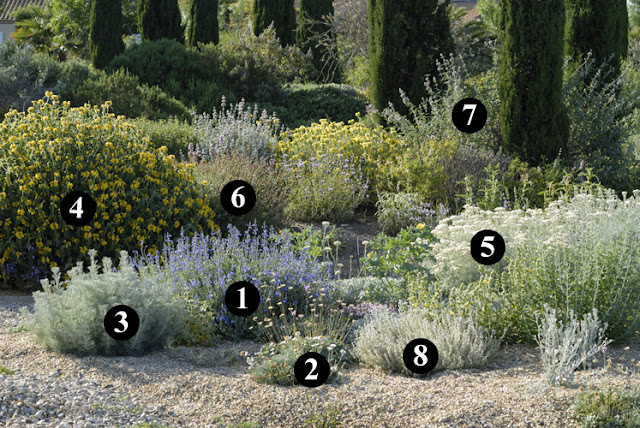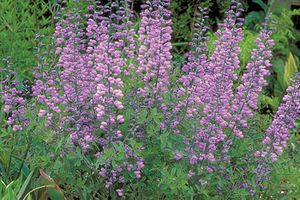TULSI - India's 'Holy Basil'
Also known as the Queen of Herbs, it is the most important plant in the Hindu way of life.
What is Tulsi (Holy Basil)?
TULSI (Ocimum sanctum), known as Holy Basil - is the sacred herb of India. (Please note it is a different plant from the pesto variety of Basil, Ocimum basilicum.)
It has been revered for over five thousand years as a healing balm for body, mind and spirit.
The leaves, flowers, fruits, root, branches and the main stem and everything about Tulsi is sacred in India; even the soil under the Tulsi plant is holy. ( Padmapurana 24/2)
Tulsi is indigenous to the Indian subcontinent. It is a bushy shrub about 18 inches high with oval and serrated leaves (the leaf colors range from light green to dark purple, depending on the variety). In the wild, tulsi is an annual, but it can be kept as a perennial by trimming it before it forms seeds. The plant has delicate lavender-colored flowers, and its fruit consists of tiny rust-colored nuts.
The Benefits of Tulsi
Tulsi leaves offer a rich source of essential oil, containing eugenol, nerol, camphor, and a variety of terpenes and flavonoids. The oil is a strong antiseptic against many kinds of disease-causing organisms, including bacteria, fungi, and parasites.
The oil is also an antioxidant and is used for pain and arthritis. Recent scientific reports have confirmed its healing potential in medical conditions ranging from diabetes to cancer. Furthermore, Tulsi may even possess useful antibiotic activity, have a blood pressure lowering effect.
Tulsi Helps Soothe Stress
A number of studies of animals have shown that tulsi protects healthy cells from the toxicity of radiation and chemotherapy and it seems to influence the neurochemistry of the brain in a way similar to antidepressant medications.
If you are taking tulsi for stress relief, some people recommend growing your own plant from seeds or cuttings and nibbling on a few leaves every day.
 |
| this photo is from the Seeds of India website -check it out for Tulsi Seeds |
In India, Every Household Grows Tulsi
Holy basil is sacred to Lord Vishnu and is an incarnation of the goddess Tulsi, offering divine protection. Many Indian families keep a living Tulsi plant in their homes – tending to it with great care and reverence. It is typically grown in an earthen pot in the family home or in a the garden.
Tulsi plant adorned, from tulsi tea website
Lord Shiva described the power of Tulsi, saying'
" ....Every house, every village, every forest, wherever the plant of Tulsi is grown, there misery, fear, disease and poverty do not exist. Tulsi, in all aspects and places, is holier than holy.
Where the breeze blows through Tulsi plants, it spreads Tulsi's fragrance making the surrounding area pious and pure. Lord Vishnu and other gods shower their blessings on the people who worship and grow Tulsi....
Those who plant and nurture Tulsi in the Shiva temple or in any other place of worship,.... are twice blessed by the gods.... "
So enjoy of cup of Tulsi tea or maybe two...










This comment has been removed by a blog administrator.
ReplyDeleteI didn't know the benefts of tulsi tea could do that good.. Excellent article.
ReplyDeleteOrganic Green Tea in India
thanks!
Delete